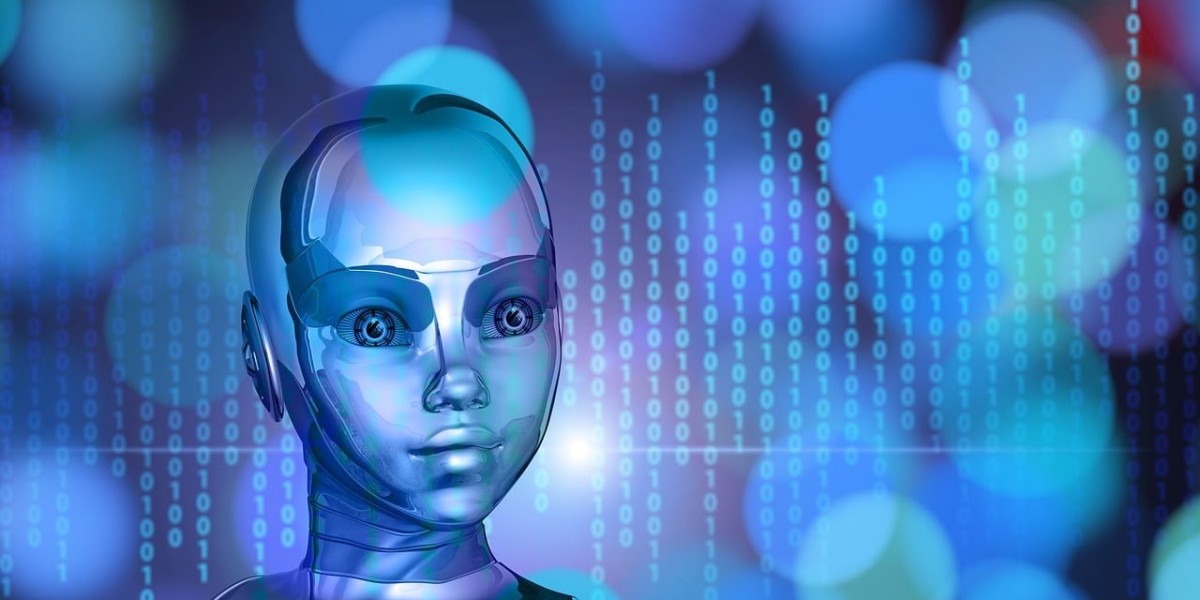Introduction:
In today's rapidly evolving world, artificial intelligence (AI) permeates every aspect of our lives. From healthcare to finance and entertainment, AI is reshaping industries and pushing the boundaries of what's possible. One area where AI is poised to make a profound impact is education. In this blog, we'll explore the transformative effects of AI on education and how it enhances the learning experience for students worldwide.
The Promise of Personalization:
One of the most significant ways AI revolutionizes education is through personalized learning. Traditional classrooms often struggle to meet the diverse needs of students, but AI-driven educational platforms can adapt to individual learning styles and paces. By analyzing a student's performance and preferences, AI can tailor lessons and assignments to ensure they receive the most effective and engaging learning experience.
Imagine a scenario where a student struggles with math but excels in literature. AI can identify this discrepancy and provide additional math exercises while allowing students to progress at their own pace in literature. This personalization boosts comprehension and keeps students motivated and engaged in their studies.
Automating Administrative Tasks:
AI is also streamlining administrative tasks in educational institutions. From admissions to grading, AI-powered systems can handle repetitive tasks efficiently, freeing educators to focus more on teaching and mentoring. This automation reduces administrative overhead, allowing schools to allocate resources where they matter most—improving the quality of education.
For instance, AI can manage the admissions process by sorting applications, checking qualifications, and conducting initial interviews. This saves time and ensures a fair and unbiased selection process.
Enabling Data-Driven Decision-Making:
The power of data in education cannot be overstated. AI plays a pivotal role in collecting, analyzing, and interpreting educational data. With AI, educators gain deeper insights into student performance, allowing them to make informed decisions on curriculum adjustments, resource allocation, and intervention strategies.
Suppose a school notices that a particular class consistently struggles with a specific topic in mathematics. AI can pinpoint this issue, prompting educators to rethink their teaching methods or provide additional resources to address the problem proactively. Data-driven decision-making enhances the overall quality of education and student outcomes.
Enhancing Accessibility:
AI also holds the potential to make education more accessible than ever before. Online learning has become increasingly popular, and AI is vital in delivering effective online teaching. Through AI-driven platforms, students can access high-quality educational materials and courses, regardless of their geographical location or physical limitations.
Online data science courses, for example, have become increasingly popular due to AI-driven platforms. These courses leverage AI algorithms to adapt to students' progress and provide immediate feedback, making online education a viable and effective option for those interested in data science.
The Role of Online Data Science Courses:
Online data science courses have emerged as a crucial component of modern education. The top data science courses are powered by AI, offering a dynamic and interactive learning experience. These courses employ AI algorithms to curate content, provide personalized assignments, and track student progress.
Students enrolling in an online data science course can benefit from features like adaptive learning, which tailors the curriculum to their current skill level. Moreover, AI can simulate real-world scenarios, allowing students to apply their knowledge and skills in practical situations. This enhances comprehension and prepares students for the demands of the job market.
Preparing Students for the Future:
The job market is evolving rapidly, with many traditional careers being transformed by automation and AI. As a result, the skills required to succeed in the workplace are also changing. Educational institutions must adapt to these changes and equip students with the skills and knowledge they need to thrive in a technology-driven world.
AI can help bridge this gap by identifying emerging trends and skills in the job market. Educational institutions can use this information to develop new programs and courses that align with industry demands. As a result, students can graduate with skills that are relevant and in high order.
Addressing Educational Inequalities:
AI has the potential to address educational inequalities by providing customized support to disadvantaged students. Students from marginalized communities often face additional challenges that can hinder their academic success. AI can identify these challenges and provide targeted interventions, such as extra tutoring or specialized resources.
Moreover, AI can offer language translation services, making educational content more accessible to non-native English speakers. This inclusivity ensures that a diverse range of students can benefit from the educational opportunities AI provides.
Ethical Considerations:
While the potential of AI in education is vast, it also raises important ethical considerations. Privacy concerns, bias in algorithms, and the role of AI in shaping the educational experience all need to be carefully addressed. Educational institutions and policymakers must work together to develop guidelines and regulations that ensure the responsible use of AI in education.
Conclusion:
The impact of artificial intelligence on education is profound and multifaceted. From personalized learning experiences to administrative automation and enhanced accessibility, AI is reshaping the educational landscape. Online data science courses powered by AI are just one example of how technology improves education and prepares students for the future job market. However, as we embrace these innovations, we must navigate the ethical and privacy challenges, ensuring that AI is a force for positive change in education.








